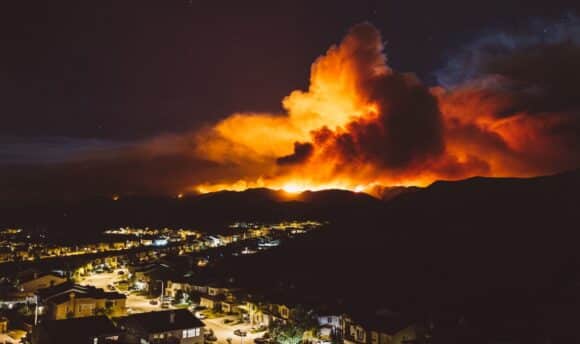After another record year of losses from natural catastrophes, more than 10,000 insurance industry and risk management professionals will gather in Boston at the end of this month for the Risk Management Society’s annual meeting. The question is: Will the conversations at the conference reflect the urgency with which we need to address the biggest risk of all – climate change? The public certainly expects the insurance industry to protect it from catastrophic climate change risks that AXA’s CEO warns will lead to an “uninsurable” world if not abated.
But U.S. insurers are currently making the problem worse. How? By continuing to underwrite and invest in planet-warming fossil fuel projects and companies.
Many global insurers understand that their reputations (not to mention the fate of the planet) are at stake and are taking steps to end their underwriting of and investments in fossil fuels. Meanwhile the U.S. insurance industry is escalating climate risks by continuing to insure and invest in these projects and companies. To catch up with their peers and become part of the solution to climate change, U.S. insurers need to:
● Cease underwriting coal and tar sands projects and companies
● Divest from fossil fuels companies
● Scale up investment in clean technology and renewable energy projects and companies
Will U.S. insurers continue to lag behind their peers?
No major U.S. insurance company has so far pledged to divest its holdings in fossil fuel companies or restrict underwriting for fossil fuel projects. Contrast that with the 22 major insurers that have divested from coal and tar sands companies and the 11 — including Allianz, AXA, Generali, QBE, Swiss Re & Zurich — that have stopped or limited underwriting for the coal and tar sands industries.
A majority of Americans — and most young people — are concerned about climate change and expect the business community to do its part. According to Moody’s, failure to act will result in more insured losses from extreme weather, growing litigation risk, and increased exposure to stranded assets in the transition to a clean energy economy. And, as the American public experience more and more climate-related catastrophes — from extreme wildfires to floods to hurricanes — those insurance companies which fail to act will suffer reputational damage and lose business to companies which are proactively tackling climate change.
Forward-thinking U.S. insurers now have the opportunity to step up and take an active role in tackling the biggest risk of all — climate change. The Insure Our Future team will be attending RIMS 2019 and would love to talk with you about how your company can be part of the solution.
Follow us on Twitter @Insure_Future and contact Ross Hammond at ross@sunriseproject.net for more information or to arrange a meeting with our team.



